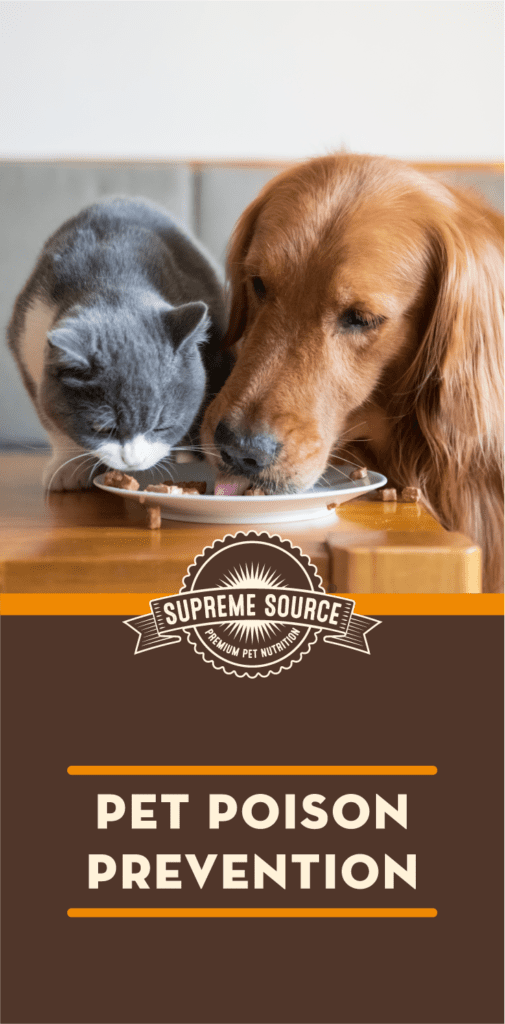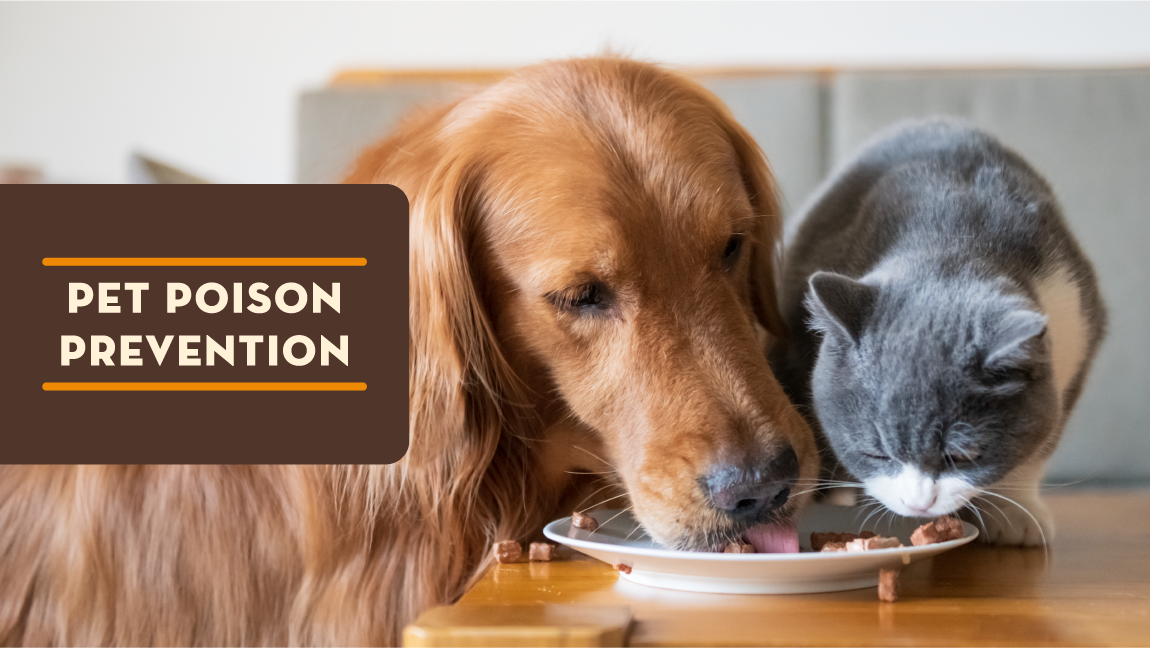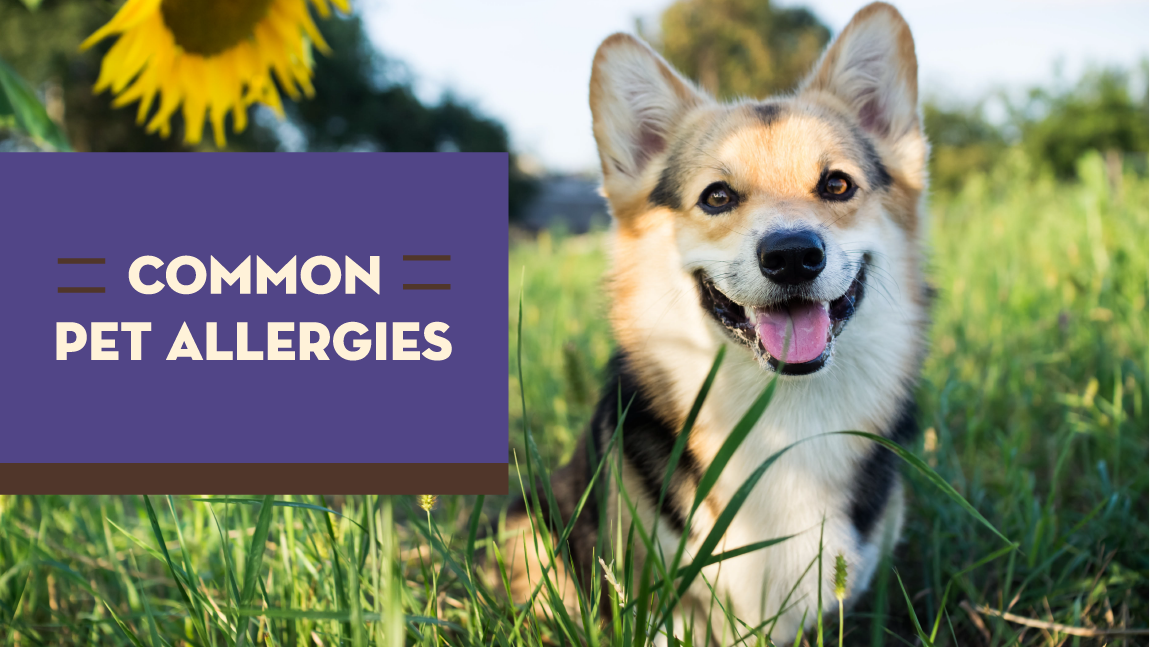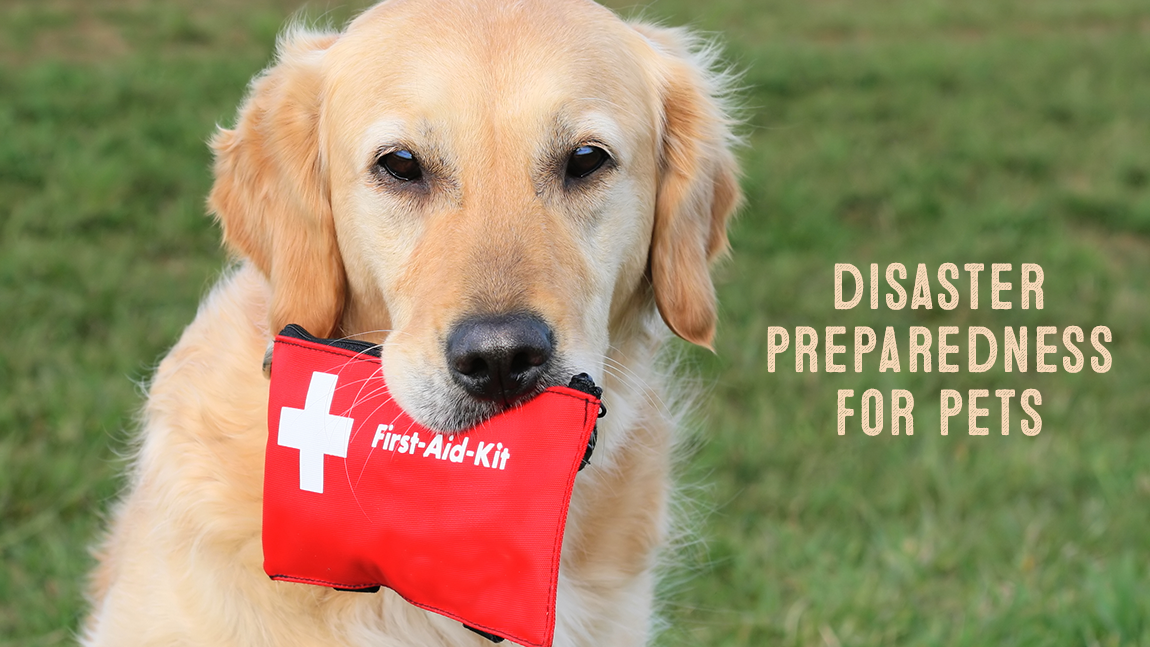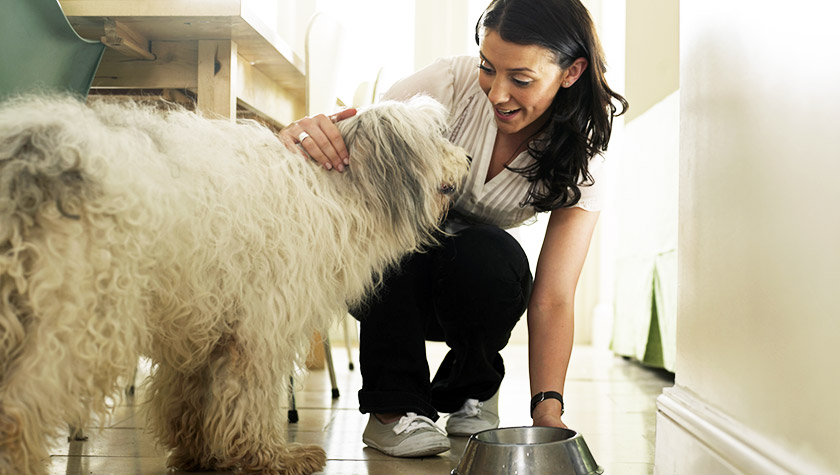It’s never the wrong time to be reminded of potential hazards your pet could face. Understanding what can be harmful to your pet is important to responsible ownership and to helping give your four-legged friend his happiest and healthiest life.
So, what is poisonous to your pet?
There are a number of things that are poisonous to your pet. The best way to avoid potentially harmful situations is to stick to veterinarian-approved diets and treats and keep harmful chemicals and substances from your pet. But we know cats and dogs are curious creatures and sometimes get into things they shouldn’t. Some common poisonous items to keep in mind include:
- Chocolate
- Caffeine
- Onions, garlic and chives
- Alcohol
- Mold
- Grapes and raisins
- Avocado
- Macadamia nuts
- Xylitol (found in a number of sugar free products)
- Some household plants
- Mouse and rat poison
- Household cleaners
- Medications not prescribed by a veterinarian
This list is some of the most common poisons, but does not include everything. It is best to contact your vet for a more exhaustive list.
What if my pet gets into a poisonous item?
No matter how cautious you are as a pet owner, dogs and cats can still find ways to get into trouble. If you think your pet may have been poisoned, try to stay calm. Acting quickly and rationally is important. First, gather up any of the poison that remains. This will be helpful for your veterinarian. Bring your dog to an urgent pet care facility or veterinary hospital as soon as possible. If it is not the same clinic where your veterinarian is, make sure to contact your primary veterinarian as well. As soon as you reach the hospital or clinic, your pet is in good hands.
How can pet owners help prevent poisoning?
Keeping harmful items out of reach of your four-legged friend is the best way to help prevent pet poisoning. Some things to keep in mind include:
- Keep all medications in cabinets that are inaccessible to your pet. If you accidentally drop a pill, find it immediately and always supervise children who need help taking medications.
- Avoid feeding your pet table scraps. If you want to give your pet a human “treat” every now and then, consult your veterinarian on what is safe. Or, preferably, stick with pet treats which are specially formulated for your dog and cat’s digestion system and nutrition needs.
- Keep all harmful cleaning chemicals or rat poisons in cabinets that are inaccessible to pets. When you are using these chemicals be very cautious. If you place rat bait, be sure to inform your neighbors so they know to keep their pets away and ask them to do the same for you as well.
- When buying plants, opt for those that won’t cause problems if your pet accidentally eats them. If you choose to have a toxic plant, keep it out of reach of your pets.
